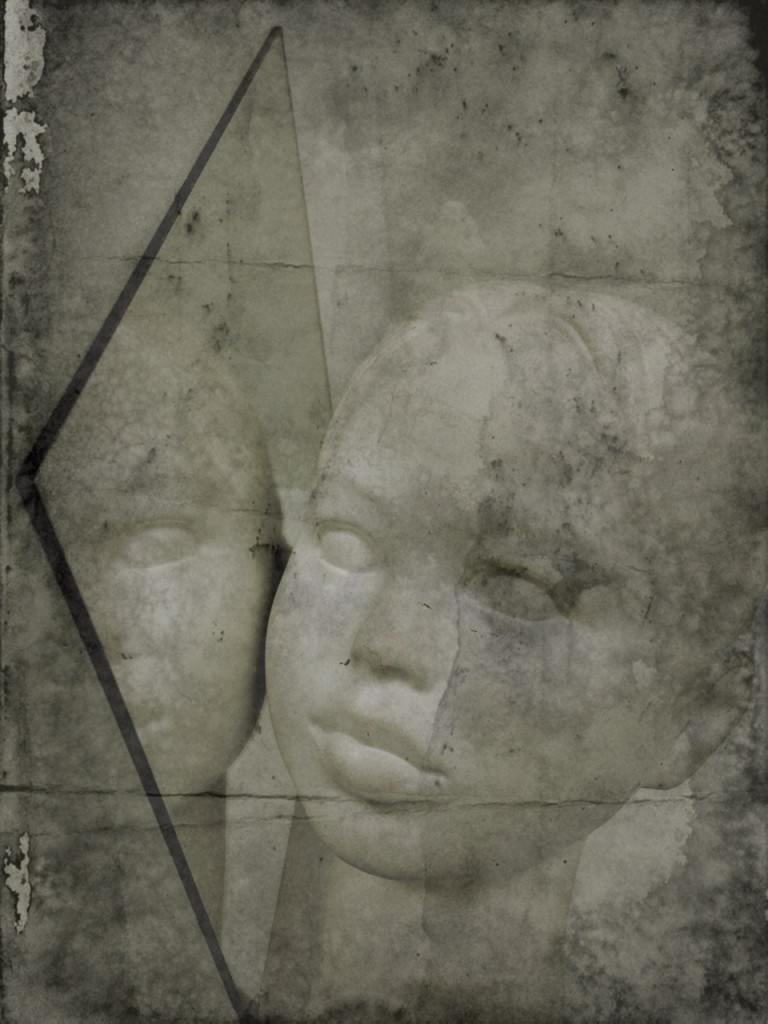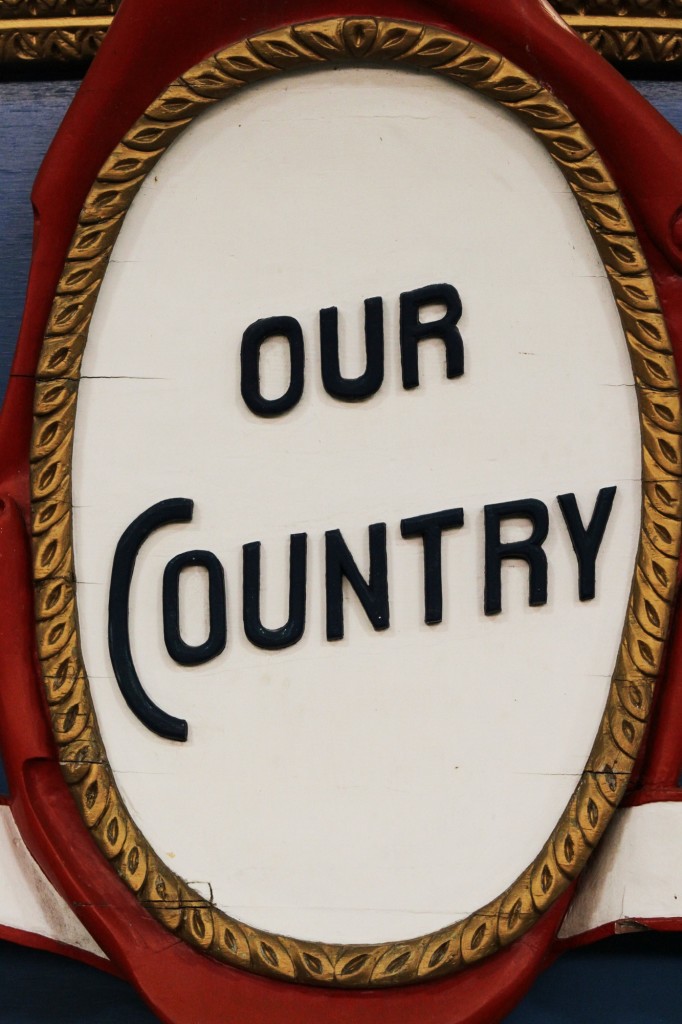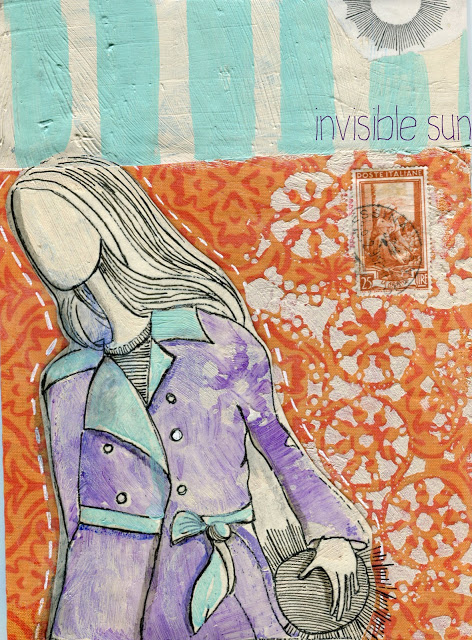
By Adrienne Pilon
“I can only say, there we have been: but I cannot say where. And I cannot say how long for that is to place it in time.” —T.S. Eliot
A friend once confided to me that her difficult and complex relationship with her mother was a product of their long, shared history.
“Sure,” I agreed. “Mothers and daughters.”
“Actually,” she informed me, “we’ve already spent several lifetimes together, beginning in Ancient Egypt. I was a princess and my mother was a handmaiden. She was very close to me.”
A psychic had told them all this.
“So it’s very complicated,” she added.
I tried to clamp my gaping jaw shut. I think I said, “Wow!” or “How did you find that out?” I did not, to my credit, say, “Are you a fucking lunatic?”
At a party one night, another friend mentioned that he had lived as an Indian chief on the Great Plains. He’d discovered this through a series of shamanic journeys. I wanted to be polite, so I reserved the eye-rolling. I stumbled through a neutral comment, something like, “Wow, how interesting!” or, “How amazing to possess that knowledge.” Something supportive. Someone else at the party chimed in about his shamanic journey, and how he, too, had been a Native American of great prominence in the eighteenth century. My drink suddenly needed a refill.
How is it that so many people happen to be royalty in their past lives? Where the hell are all the peasants?
Secretly, part of me wants to believe it—all of it. Reserved in my depths is a little bit of hope that just maybe there’s something more when this life is over, and that some of it is spectacular. Reincarnation? Heaven? That would be fantastic. Yet I believe in facing reality. My rational self knows that I will be rendered to dust and a random collection of atoms at death, end of story. There is no other life but this.
Then I think of Borys.
It was a midnight train on a cold October night more than two decades ago and I was traveling west through Poland. I stood looking out the window. Castles and farmhouses that are picturesque by the light of day become strange and mysterious and exotic in the moonlight.
I noticed a man at the end of the car. He, too, was looking out the window. When I looked at him our eyes briefly met. A shock of recognition hummed through me. To say “shock” is perhaps inaccurate. It was the surety of the recognition that was shocking, and not the recognition itself, for though I was sure I knew this man, I had never seen him before. I looked up again and we locked eyes. Again, that confirmed sense of recognition flashed between us. He tilted his head slightly towards me, as if to say, “Yes.” Again and again our eyes met as we gradually moved towards one another, a dance of approach, a few steps at a time, until we were standing side by side at the windows.
I want to be clear: this was not a case of mutual attraction. This man was not strange or mysterious or exotic to me. I was overwhelmed, rather, with a sense of familiarity, of the known and the comfortable. Middle-aged, well over twenty years my senior, the man was short, bald and a bit stocky—roundish. He had a small gap between his front teeth. He was old enough to be my father; he did not look at me with desire.
“Dzien dobry,” I said.
“Hallo,” he said with an accent.
I tried Czech, since I had a few phrases. “Dobry den”.
“Dzien dobry,” he said. “Polish”.
“Dzien dobry,” I said. I had exhausted my Polish. “I don’t speak Polish.”
Neither my Spanish nor his Russian did us any good. We soon determined that he had a little English, and we began to speak as best we could.
I asked, “Do I know you?”
He nodded. “Yes.”
“I know you,” I said, pointing from myself to him. No question this time. He nodded his agreement back. We laughed.
Soon thereafter the train route terminated near Katowice and everyone got off. We stepped onto the platform and hesitated. With a few words and gestures we made our way to the train café and sat down together. We communicated our travel plans to one another: I was taking the next train over the border to Prague; he was heading on a different train to his village in Poland. As we sat together in that café and talked of our lives, we missed those trains. Over the next hours, in the middle of the night in the middle of Eastern Europe, we talked, we didn’t talk. We smiled. A lot. We wrote notes on pieces of paper torn from a little notebook I carried.
We kept saying, “I know you” to one another and it was true. Yet Borys had never been to the United States. This was my first trip to Eastern Europe. We traced our movements over the last year, two years, ten, twenty—more than two-thirds of my lifetime. Our paths had not intersected anywhere, anytime. I had no ancestors from that part of the world; his had been rooted in place for generations.
This was the feeling: Like many train stations in Eastern Europe, it was charmless, with hard plastic chairs and harsh overhead lights. Yet I was not uncomfortable in my chair. I had, in fact, never been so comfortable in my life. I felt a sense of contentment, a quiet joy that made me happy to sit in that shitty plastic chair for as long as possible. I had spent the weeks preceding this moment on the move; I felt a need to keep going and moving, a restlessness that wasn’t wanderlust but just unsettled. I had traveled with others and traveled alone. Now, for the first time in weeks, I felt no desire to get up and move on. I didn’t think I needed to be anywhere else. I was quiet and unmoving, inside and out. A deep contentment radiated from Boris to me and back again. I felt safe. I felt—and this is strange in retrospect, but felt utterly natural at the time—loved.
I found out that Borys, or Boris—he wrote it out for me both ways—was a Pole of Russian descent. He liked beer, and we drank one together. He was a baker. He had lived in his village his entire life. He was fifty-two and married with four children, the youngest of whom was a girl of fourteen. One child had died. Even before he told me, I knew this, somehow. I could feel a grief long worn. I could feel his love for his family. I could almost see his sons, one who towered over his father. I could envision the chair Borys sat in every evening.
I told him how I had just finished graduate school, just ended a long relationship, and was traveling in hopes of seeing the world and avoiding familiar people and places.
Though I was avoiding the familiar, I felt a deep well of familiarity in Borys’s presence. I told him things I’d never expressed to another living soul. Why? To meet and know and love instantaneously—and this person could feel this too? How?
Trains came and Borys and I said farewell and went our separate ways, never to cross paths again. I continued with my travel and lost most of those fragments of paper we wrote on. I had no way to contact him; I didn’t even know his last name.
As a skeptic, I tell myself that this encounter can be explained or understood. There must be some biological process that we’ve not yet discovered, some scrambling of the neurons that fired in a particular way, in this particular place, with this particular man. A scent I could not detect, perhaps? A misplaced memory that we somehow shared? Perhaps the night and the drama of the eastern European landscape had affected me. Or perhaps it was a function of traveling too lonely for too long.
Whatever alchemy created that moment, I now reserve my internal scoffing when confronted by stories of reincarnation or life after death. For I believe wholeheartedly that Borys was known to me, and I to him. Both of us felt it thoroughly and completely. How, though? How did I know this man? Did Borys and I have another life?
More than twenty years later all I have are those unanswered questions, the memory of that night, and a torn piece of lined paper with “Boris-Borys” written in a man’s heavy block script: a small and crumpled scrap I hold like a jewel in the palm of my hand.
•••
ADRIENNE PILON is a writer, teacher, and traveler. She lives with her family in North Carolina.

 Follow
Follow


